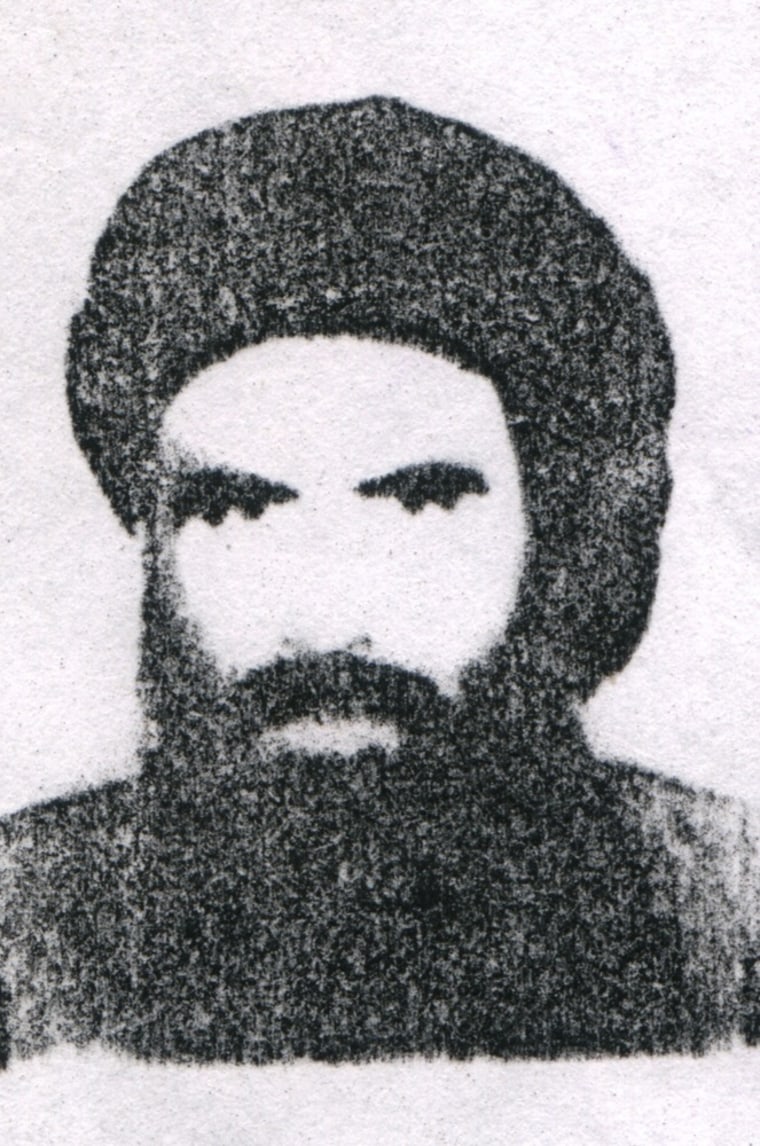Taliban leader Mullah Mohammed Omar has publicly declared that he wants good relations with the world, supports “modern” education and will respect other ethnic and religious communities within Afghanistan.
In an apparent attempt to rehabilitate the Taliban’s image - damaged when its fighters shot Pakistan teenager Malala Yousafzai in the head because she had campaigned for girls' education, and when it was blamed for killing 20 polio workers – Omar issued a statement Tuesday that struck a more conciliatory, inclusive approach.
However, he stressed his followers should not take part in the proposed election in Afghanistan next year after the withdrawal of most foreign forces.
Omar's exact whereabouts are unknown, and the statement - on the eve of the Muslim Eid holiday - was released by Taliban officials.
The Taliban leader has never expressed support for modern education, but in the statement he said it was “a fundamental need of every society in the present time.”
An Afghan Taliban official, speaking anonymously after the statement was issued, said that girls would be allowed to go to school if the Taliban returned to power.
However, he said they would oppose co-education and would build separate institutions for the girls where they would be taught according to Islam’s Shariah.
“We learnt a lot from the past mistakes and would not repeat those if came into power. But that doesn’t mean we would compromise on our Islamic values,” the Taliban official said.
He added that the Taliban had formed a commission that had drafted a new education policy so the international community could not blame them for opposing education.
In his statement, Omar also said the Taliban was ready to share the power with other political stakeholders and willing to talk to opponents.
"When the occupation ends, reaching an understanding with the Afghans will not be a hard task because, by adhering to and having common principles and culture, the Afghans understand each other better," he said.
Omar also said the Taliban would not take revenge against people who had sided with the U.S.-led international forces in Afghanistan if they admitted they had made a mistake.
“We consider as our brother and give him a welcome whoever openly expresses regret about his support for occupation,” Mullah Omer said.
He also said the Taliban was strongly opposed to having the country divided into separate regions.
“We would work together with the Afghan people and would not allow division of our country under geographical locations and ethnic denominations,” Omar said.
But he stressed the Taliban would not take part in democratic elections, planned for next year following the final withdrawal of foreign forces.
“Our pious and Mujahid people know that selection, de facto, takes place in Washington. These nominal rulers are not elected through the ballots of the people. Rather they are selected as per the discretion of Washington,” the Taliban leader said.
Omar also said international humanitarian organizations were allowed in Taliban-controlled territory, providing they are not involved in politics, espionage or promoting un-Islamic ways. In June 2012, the Taliban banned polio workers and some 20 have been shot dead for taking part in vaccination campaigns seen as a potential CIA plot following the raid that killed Osama bin Laden.
And he asked his fighters to follow the Taliban code of conduct and stop others from misusing “jihad” by, for example, kidnapping people for ransom.
On the attempts to hold peace talks with the U.S., Omar said the Taliban was taking part for one reason only.
“The aim of our contacts and talks with the invaders which are conducted through the [Taliban’s] political office is to put an end to occupation of Afghanistan,” he said.
“I assure you that I will not reach any illegitimate compromise or unlawful deal,” he said. “No one should perceive that the Mujahideen will relinquish of their lofty religious principles and national interests.”
He said Afghans viewed the presence of foreign troops as an encroachment on their independence that they were not willing to accept.
Omar also made clear that they will not accept any foreign military base in Afghanistan after 2014.
“The occupying countries should learn from the bitter experiences of the past twelve years. They should not try their fate once more by prolonging the occupation or by establishing permanent bases.”
Adila Jan, deputy spokeswoman for Afghanistan's President Hamid Karzai, said there would be “no comment” from the government.
NBC News' Jamieson Lesko and Khyber Shinwari contributed to this report.
Related:
